How did it come to this? When did the constitutional right of the US Senate to ‘advise and consent’ on Supreme Court nominees become a mission to ‘search and destroy’ individuals by any means? Hemingway and Severino, both connected to conservative legal groups, provide a carefully researched and highly detailed account of the battle over the confirmation of Brett Kavanaugh. After reading it one cannot help but be amazed at how the liberal left, which once held itself out as the exemplar of due process and reasoned argument, has become mired in its own self-righteousness and venom.
The Kavanaugh nomination was particularly important to the left because it might lead to the reversal of the Roe v. Wade decision, as it involved the replacement of a liberal judge with a conservative. To activist warriors, the protection of Roe v. Wade is an end that justifies any means. When added to their hatred of Donald Trump, the result is a lack of any moral compass and the loss of any sense of legal procedure.
Senior Democrats like Senator Dianne Feinstein announced minutes after Kavanaugh’s nomination was made public that she would vote against anyone put forward by Trump regardless of their qualifications. Most of the other Senate Democrats said the samething, making one wonder about the point of the whole business. But this left them a few votes short. The strategy was to attack Kavanaugh’s personality and background to swing some moderate Republicans over.
Kavanaugh had been warned by the White House that it was going to be tough, and it says much about the man’s character that he never considered not accepting the nomination. Right from the start, there were claims, usually pushed along by the Democrats on the Judiciary Committee, that he had assaulted or raped women. The claims quickly collapsed when the FBI investigated them; the claimants often seemed astonished that there would be any investigation at all. Activist lawyer Michael Avenatti brought forward a woman called Julie Swetnick who claimed that while he was at university, Kavanaugh had been part of a plot to drug and gang-rape women. It fell apart when she admitted that she had no solid evidence for any such thing, and had a long history of making spurious charges.
The White House thought that the confirmation was going to proceed according to plan when Feinstein introduced another claimant. It was all very secretive; Feinstein willingly broke the committee rules by withholding the details until the last moment. When the claimant, Christine Blasey Ford, eventually appeared before the committee she said that Kavanaugh had sexually assaulted her at a party when they were in high school, leaving her permanently traumatised. Hemingway and Severino note that her social media presence had been scrubbed to remove any evidence of her militant anti-Trump views.
Her account was impressive, as a media performance, but cracks soon began to appear. She was fuzzy on when the assault had occurred: she first said the late 1980s, but that did not work because by then Kavanaugh had moved away. She eventually settled on 1982, which would have made her 15. She could not say where the party was, how she got there or how she got home. The real killer to her story, however, was that the friends she said were with her at the time had no recollection of either the party or the assault. Neither did her account of trauma ring true. She said she was afraid to fly, but in fact she often flew to other countries to surf.
None of this mattered to the anti-Kavanaugh forces, who said, quite blatantly, that Kavanaugh was guilty until he could prove himself innocent (although it is unlikely that any amount of proof would have been enough to satisfy them.) Kavanaugh, for his part, could not remember ever meeting Ford, although he admitted that, yes, in high school and university, he sometimes attended parties and he sometimes drank beer.
Depositions from women in Kavanaugh’s life saying that he had always treated them with respect were ignored. A common pattern emerged; activist women would say that they had been assaulted and that Kavanaugh should be held responsible even though he was not the assailant. A confirmation vote for Kavanaugh, they shrieked, was a vote in support of rape and misogyny. Even the fact that Kavanaugh coached a girls’ basketball team was raised as evidence of likely paedophilia.
When Kavanaugh spoke before the committee, he avoided attacking Ford personally. He said that she had probably been assaulted by someone else and had mistakenly conflated the experience with meeting him. It was a generous view, given the devastating consequences for him of her ‘mistaken’ accusation of sexual assault. Nevertheless, he carefully debunked her allegations as well as all the others that were made against him, and emphasised that his judicial philosophy sat squarely within the mainstream.
It ended where it began, with a confirmation vote largely along party lines (one senator on each side switched.) The left claimed victory, saying that any vote Kavanaugh made was now fatally tainted. Their media allies agreed, but when he was sworn in several Supreme Court justices, including liberals Ginsburg and Kagan, made a point of attending.
The left also said that any other potential conservative nominees would now be afraid to accept a nomination but Hemingway and Severino are sceptical. Judges tend to be tough characters, they say, and a Supreme Court position is the professional pinnacle. Nevertheless, the viciousness of the attacks on Kavanaugh indicate the depth of the divide in US society, as well as the issue of who can be trusted to communicate the truth. Certainly, the mainstream media came out of the whole affair with their collective reputation badly diminished.
Justice on Trial is not a light read, with a large cast and overlapping timelines but it should be read by anyone with an interest in US politics. It is not a happy story but it is an important one.
Got something to add? Join the discussion and comment below.
Get 10 issues for just $10
Subscribe to The Spectator Australia today for the next 10 magazine issues, plus full online access, for just $10.
You might disagree with half of it, but you’ll enjoy reading all of it. Try your first month for free, then just $2 a week for the remainder of your first year.

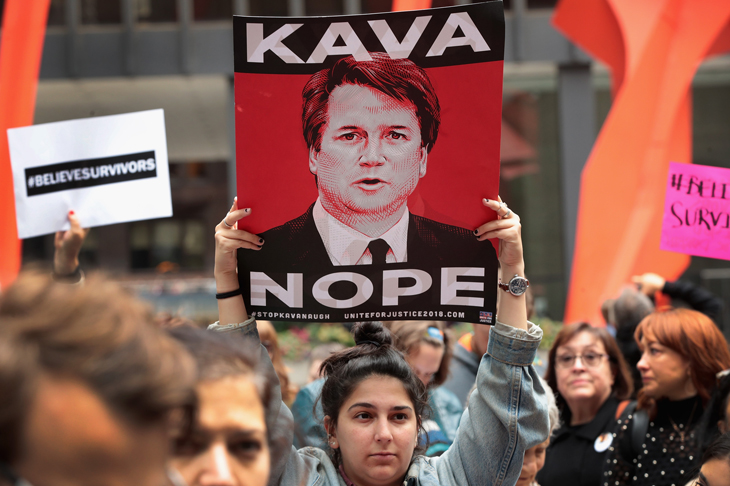
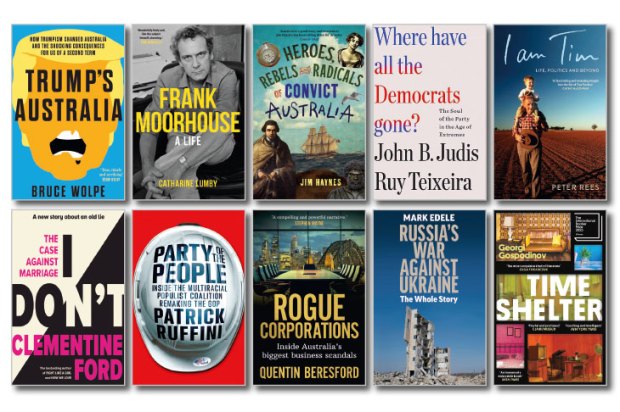
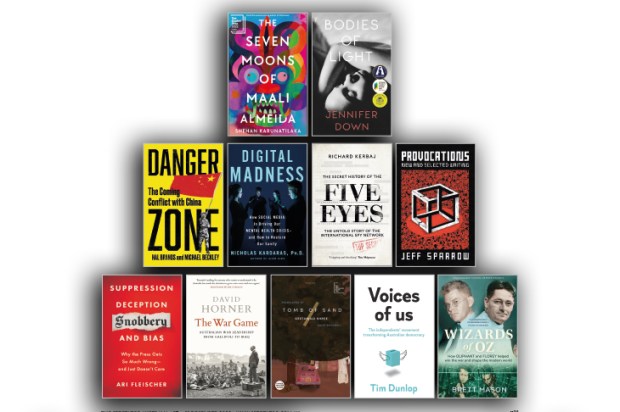
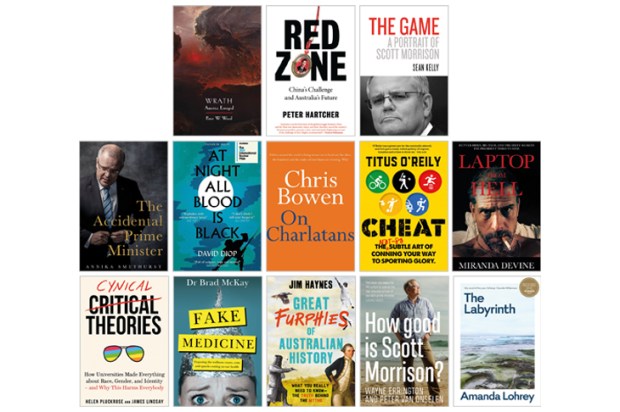

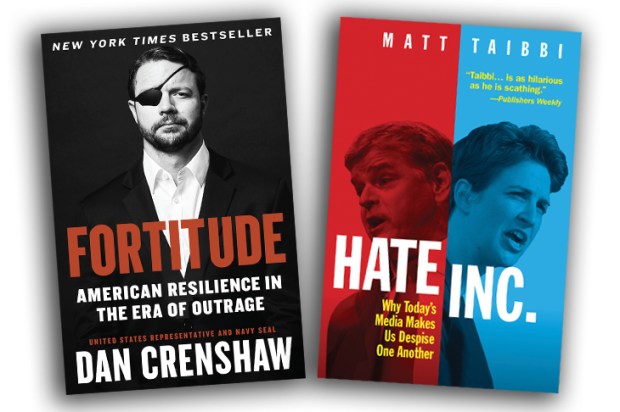
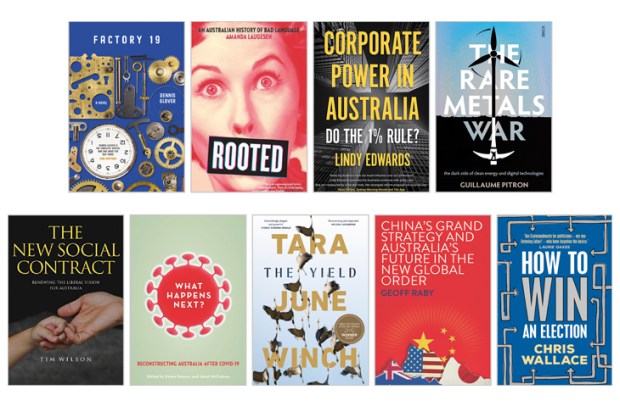






Comments
Don't miss out
Join the conversation with other Spectator Australia readers. Subscribe to leave a comment.
SUBSCRIBEAlready a subscriber? Log in